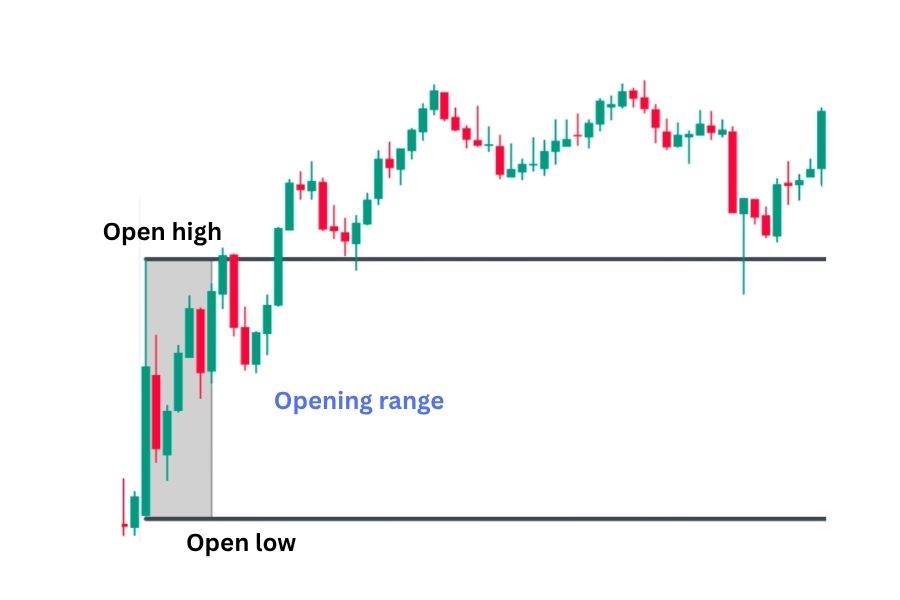
Finding the Right Cybersecurity Program at your place
Dailybulls Research
Contributor
If you wish to see growth in your career, you need more than a basic bachelor’s degree in computer science. Upskilling is the way to go. Upskilling involves gaining advanced skills in a specific field through education and practical training. It is always prudent to consider gaining expertise in a growing field with ample job opportunities and salary potential. One such niche skill is cybersecurity. A high-quality cybersecurity certification program can improve your employability and put your career on a high-growth path.
A quick search for cyber security courses on your favorite search engine can yield many results. However, it is best to exercise caution and research before choosing a cybersecurity program that matches your skill level and expectations.
Why is Cybersecurity Certification an Excellent Upskilling Choice?
Here are some strong reasons why sharpening your skills in a niche like cybersecurity is the best career decision you can make.
The Growing Prevalence of Cybercrimes
With the increasing popularity of artificial intelligence, people are much more independent in their approach to work. For instance, instead of hiring someone to design images for a website, blog owners are more likely to use the text to image AI method to get the work done on their own.
While this sounds great, it also makes people exposed to cybercrimes. As a result, it is the need of the hour for independent internet users to prioritize knowledge and expertise in cybersecurity.
- Cybercrimes are becoming increasingly sophisticated as cybercriminals use cutting-edge technology like Artificial Intelligence and Machine Learning.
- Mobile platforms, work-from-home mode, and the sharp spike in company consumer data collection have also aggravated this problem.
- The rising incidence of cybercrimes is alarming because virtually every sector, from aviation to healthcare, has fallen prey to cyber-attacks.
Increased Demand for Cybersecurity Professionals
- Companies constantly seek to reinforce security measures by hiring competent professionals to tackle this threat.
- On average, there are about 3.5 million open cybersecurity jobs in 2023, and according to the US Bureau of Labor Statistics, the job market for cybersecurity professionals is expected to grow by 35% by 2031.
- As cybersecurity and risk management are evolving fields, knowledge about regulatory compliance must constantly be updated.
Career Prospects in Cybersecurity
- Cybersecurity pays well, and the average salary of a cybersecurity specialist is between $117K and $194K per year.
- With a cybersecurity certification, you can apply for various jobs in industries such as
-security consultancies
-Information technology services
-Financial services,
-Transport services
-Airlines
-Public sector - You can apply for employment opportunities focusing on different aspects of cybersecurity, such as engineering, testing, auditing, and Incident response.
Types of Cybersecurity Study Programs
As cybersecurity is a niche field, several courses are available to study it. Generally, cybersecurity programs can be taken up as Degree programs or certification courses.
Degree Programs
There are several Associate, Bachelor, and Masters degrees being offered in the subject by reputed Universities. Course content will vary between universities; in general, the focus area in each of these degrees is as below-
- An Associate degree -basics of infrastructure security, networking, and Database Management.
- A Bachelors degree – studies in programming languages such as Python and an introduction to risk management.
- A Masters degree – in enterprise architecture and the managerial aspects of security management.
Certification Programs
- Certification programs in cybersecurity offer tremendous advantages in career development to working professionals, as they can be completed while working full-time or part-time.
- Most certification programs are flexible and can be completed at your own pace. For Eg: CEH Certification, CISSP Certification, CISA, and CISM Related Certifications.
- While most cybersecurity certification programs do not have stringent prerequisites, some require a few years of work experience before applicants are accepted.
How to Choose the Right Cybersecurity Program For You
While investing money in a cybersecurity program, there are three aspects to remember.
- Understand what skill shortage exists in the cybersecurity job market. Check out which concentrations in cybersecurity are in great demand.
- Carefully examine the many alternatives available and choose one that aligns with your career goals and skill levels.
- Research and evaluate cybersecurity courses to pick one that gives you the best value for your money.
Read on to understand the parameters to make your personal cybersecurity course checklist.
Course Curricula
Not all cybersecurity courses are made equal. While some teach the fundamentals, others may go deep into specific concentrations, such as cryptography or penetration testing. An intensive course should focus on cybersecurity’s offensive and defensive aspects. It should cover significant topics such as Infrastructure management, Network security, Vulnerability assessment, threat analysis, Risk management, Identity management, And relevant tools such as Python, Burp Suite, and Wireshark.
Mode of Instruction
Online courses have been gaining popularity because they offer users immense flexibility and encourage self-paced learning.
Offline or classroom courses offer a structured and time-bound approach to studying cybersecurity. Classes on campus allow for greater access to resources and networking opportunities.
Hybrid courses are structured to provide students with online and offline learning modules.
Duration of the Course
While most certificate courses in cybersecurity can be completed in 6 to 9 months, a postgraduate study would take 12 to 24 months to complete. Please note that course duration has to be examined, keeping the intensity of the course curricula in mind.
Course Accreditation
Course accreditation is one of the most critical parameters to consider while checking cybersecurity programs. A course conducted by reputed institutions such as Caltech CTME or CompTIA and recognized by the top bodies in the field adds tremendous value to your resume.
Hands-On Training
A high-quality cybersecurity certification program must provide plenty of hands-on project training so you get the experience of working on real-life problems.
Quality of Instruction
The quality of the faculty conducting the course is as important as the reputation of the institution providing the certification. Courses handled by industry veterans can add value far beyond the syllabus. These experts provide students with industry insights that will enrich the learning experience.
Placement Opportunities
A bonus that can benefit you as a student is the possibility of job assistance after the course. Inquire about industry tie-ups and past job assistance records with hiring companies to get an idea about this.
Cost
The cost of cybersecurity programs starts from approximately $1000 and can increase depending on the course provider’s nature, duration, and credentials.
Reviews
Reviewing the course can help you determine whether it meets your parameters and criteria. Not only will it give you a general idea about the user experience of past students, but it may also answer specific questions in your mind.
Conclusion
Enrolling in a good program will benefit you whether you want to upgrade your skills or reskill yourself in cybersecurity. Finding the right cybersecurity program is primarily a function of understanding what the industry requires and finding a course that meets those needs. Pick a course that’s updated, reputed, and valued by the industry, and you will be rewarded with a high-growth career path.
Share this insight
Spread the Alpha
If this analysis helped you, pass it along to your trading desk or community.
Related Articles
More ideas that align with your trading playbook.

Experts Suggest Ways to Maintain Good Credit Rating
Ever wonder why loan approvals are easy for some? It’s all about your CIBIL score, a 3-digit number (300-900) that tells lenders…

Breaking Down the Key Differences Between Zero Balance and Normal Accounts
With continuous technological advancements and changing customer preferences, banks have been devising many account types to cater to diverse needs. Along with…

Paper Trading in TradingView Mobile App: A Step-by-Step Guide
Trading in the stock market can be a thrilling thing to do, but it also comes with risks. To gain experience and…




Thank you for providing a step-by-step guide on paper trading in the TradingView mobile app. Your detailed instructions make it easier for users to practice trading strategies in a simulated environment. Keep up the informative content!